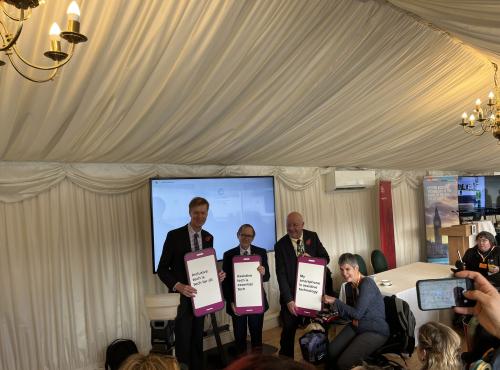A Chronic Pain Policy Manifesto from Policy Connect
Policy Connect publishes its Chronic Pain Manifesto for the General Election 2017. Produced by the organisation’s Pain and Health Team, and comprising the expertise of different independent industry figureheads, our group consists of cross-party parliamentarians and cross-sectoral industry experts.
Based on our work with the Chronic Pain Policy Coalition, these should be the chronic pain priorities for the new Government:
1. Chronic pain patients, particularly users of opioid painkillers such as morphine, should have an annual check with a healthcare professional to discuss their needs and medication.
A Chronic Pain Policy Coalition patient survey in conjunction with TalkHealth found that approximately a quarter of those surveyed said that they had not been reviewed by a healthcare professional, with 12% reporting that they had never been reviewed. This, combined with 63% of patients reporting that they experience side-effects of their medication demonstrates that closer monitoring and more open dialogues are needed between patient and a healthcare professional. The survey also found that 87% of respondents said they visit their GP for care rather than another healthcare professional, but 51% felt that their GP didn’t understand how to treat chronic pain. This demonstrates the need for clearer communication and greater levels of trust between patient and doctor.
2. Improving Lives Greenpaper should be taken forward in the new Government
From the Chronic Pain Policy Coalition’s submission to the Working Lives Greenpaper we found that:
- Amongst DH and DWP enabled programmes, the Fit for Work (FfW) scheme and contained Occupational Therapies (OTs), should become more flexible in order to ensure full utilisation of the OT skillset. To this end, FfW should be linked into local communities.
- The Fit Note should involve a three-way negotiation between employers, employees and an expert in occupational health. Consideration should be given to moving away from only letting GPs assess and issue Fit Notes and, through adequate training, enable professions such as OTs and physiotherapists or mental health workers to issue Fit Notes.
- There should be a change in narrative and a slight ‘de-medicalising’ of conversations about health and work in order to make them more relatable for patients and to enable the inclusion of non-medical issues in these discussions, that might be just as important for a person’s continuation or way back into work.



